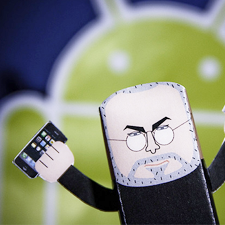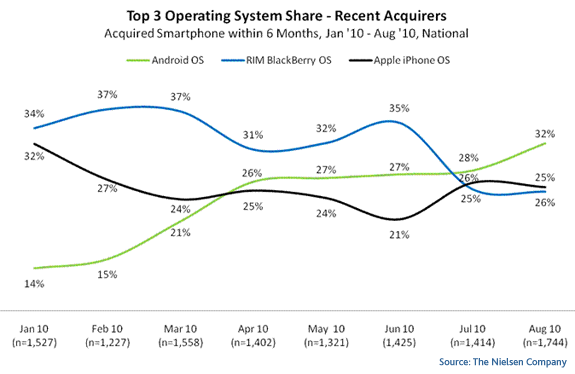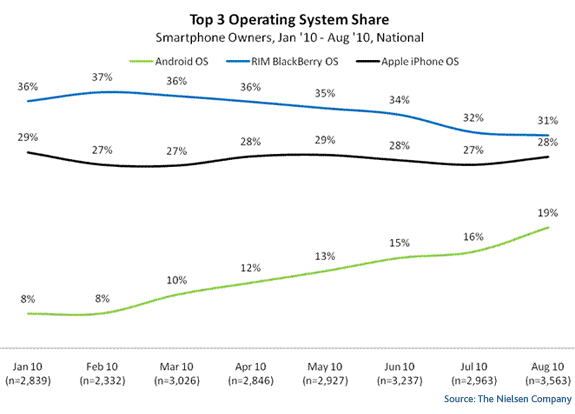Our thoughts, rants and inside knowlege of web design & development!
More Smartphone Buyers Choose Android Over iPhone
In the past six months, smartphone buyers in the U.S. were more likely to choose Android-powered devices over any others, including iPhones.

The Android platform has been strongly challenging Apple’s mobile offerings for quite some time now, and the release of the shiny new Froyo (a.k.a Android (Android) 2.2) OS leaves little to be desired.
Software aside, Android-powered hardware is as diverse as it is impressive.
Android phones range from affordable models suitable for families with kids (e.g., Motorola’s Charm, a surefire winner for the teen girl set) to high-powered, 4-inch, 8-megapixel superphones fit to satiate the geekiest of gadget fiends (Droid X and Galaxy S, anyone?).
All of those reasons, coupled with network diversity and relative affordability, have catapulted Android phones to a leading position for new gadget-buyers this year — no mean feat, considering that the iPhone 4 produced the “most successful iPhone launch ever” — which was accompanied by as much media hype as fan frenzy.
Data from Nielsen shows that despite a successful launch for the iPhone 4, Android devices still rose to capture 32% of the market of new smartphone buyers between January and August 2010.

Now, that’s not to say that Android is the number-one mobile OS just yet. While it’s popular as a choice for new devices, the iPhone predated Android phones by a few years, and Android phones didn’t truly become competitive with iPhones until recently.
For all smartphones, Android still holds third place (behind iPhone and BlackBerry; however, these numbers are likely to shift, given consumer purchasing trends.

In the end, it’s hard to tell which mobile OS will come out on top, but we’re surprised that the diaspora of Android devices has made such strides in such a relatively short amount of time.
Have you bought an Android phone, an iPhone or a BlackBerry in the past six months? In the comments, let us know what prompted your decision and whether you’re happy with your choice.
| Print article | This entry was posted by Chris on October 16, 2010 at 7:38 am, and is filed under Industry News. Follow any responses to this post through RSS 2.0. You can leave a response or trackback from your own site. |